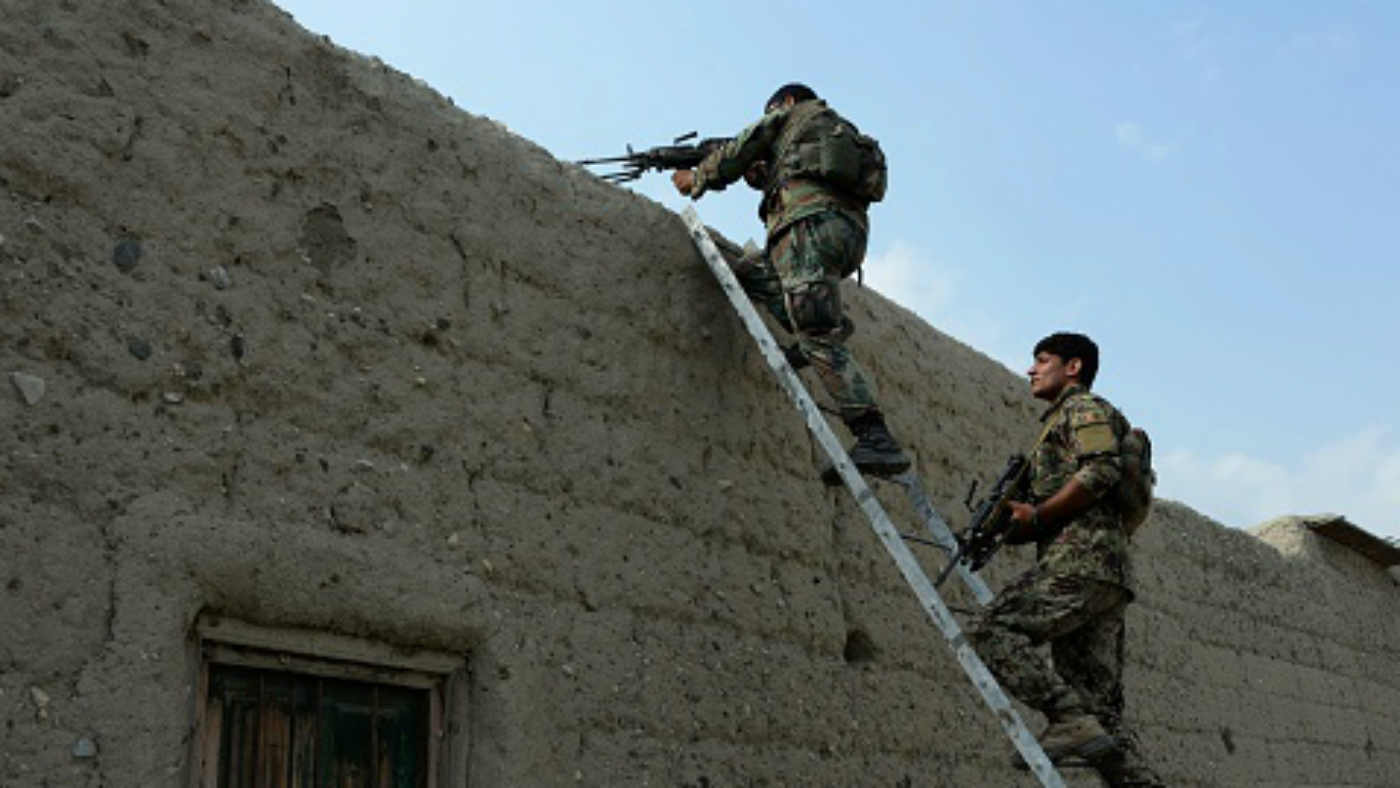Islamic State: Afghan leader killed in raid
Abdul Hasib among dozens of militants killed during US-Afghan special forces strike in Nangarhar province

A free daily email with the biggest news stories of the day – and the best features from TheWeek.com
You are now subscribed
Your newsletter sign-up was successful
The leader of Islamic State in Afghanistan was killed during a raid by US and Afghan special forces, officials confirmed.
Abdul Hasib, who was responsible for ordering a string of deadly attacks in the country, died in the Nangarhar province on 27 April.
General John Nicholson, the top US commander in Afghanistan, said: "This successful joint operation is another important step in our relentless campaign to defeat [IS] in 2017."
The Week
Escape your echo chamber. Get the facts behind the news, plus analysis from multiple perspectives.

Sign up for The Week's Free Newsletters
From our morning news briefing to a weekly Good News Newsletter, get the best of The Week delivered directly to your inbox.
From our morning news briefing to a weekly Good News Newsletter, get the best of The Week delivered directly to your inbox.
At least 35 militants and several high-ranking commanders were killed in the raid, which involved 50 US Army Rangers and 40 Afghan troops. Two rangers also died, possibly as a result of friendly fire, says US Central Command.
"Within a few minutes of landing, our combined force came under intense fire from multiple directions and well-prepared fighting positions," said a joint US-Afghan army statement. "Nevertheless, our forces successfully closed on the enemy."
Hasib, who has led the group since his predecessor Hafiz Khan was killed by a US drone strike last year, is believed to have ordered the deadly attack on a Kabul military hospital in March. IS fighters disguised as doctors stormed the building, killing dozens of medical staff and patients.
The group, sometimes referred to as Islamic State Khorasan (ISIS-K), has been active since 2015, fighting both the Taliban as well as Afghan and US forces, Reuters reports.
A free daily email with the biggest news stories of the day – and the best features from TheWeek.com
"It is believed to maintain links with the main IS movement in Iraq and Syria but has considerable operational independence," the agency adds. "Defeating the group remains one of the top US priorities in Afghanistan."
The raid came weeks after the US military dropped its most powerful conventional bomb in its arsenal on an IS cave complex in Nangarhar. At least 94 fighters, including four commanders, were killed.
-
 Local elections 2026: where are they and who is expected to win?
Local elections 2026: where are they and who is expected to win?The Explainer Labour is braced for heavy losses and U-turn on postponing some council elections hasn’t helped the party’s prospects
-
 6 of the world’s most accessible destinations
6 of the world’s most accessible destinationsThe Week Recommends Experience all of Berlin, Singapore and Sydney
-
 How the FCC’s ‘equal time’ rule works
How the FCC’s ‘equal time’ rule worksIn the Spotlight The law is at the heart of the Colbert-CBS conflict
-
 Epstein files topple law CEO, roil UK government
Epstein files topple law CEO, roil UK governmentSpeed Read Peter Mandelson, Britain’s former ambassador to the US, is caught up in the scandal
-
 Iran and US prepare to meet after skirmishes
Iran and US prepare to meet after skirmishesSpeed Read The incident comes amid heightened tensions in the Middle East
-
 Israel retrieves final hostage’s body from Gaza
Israel retrieves final hostage’s body from GazaSpeed Read The 24-year-old police officer was killed during the initial Hamas attack
-
 China’s Xi targets top general in growing purge
China’s Xi targets top general in growing purgeSpeed Read Zhang Youxia is being investigated over ‘grave violations’ of the law
-
 Panama and Canada are negotiating over a crucial copper mine
Panama and Canada are negotiating over a crucial copper mineIn the Spotlight Panama is set to make a final decision on the mine this summer
-
 Why Greenland’s natural resources are nearly impossible to mine
Why Greenland’s natural resources are nearly impossible to mineThe Explainer The country’s natural landscape makes the task extremely difficult
-
 Iran cuts internet as protests escalate
Iran cuts internet as protests escalateSpeed Reada Government buildings across the country have been set on fire
-
 US nabs ‘shadow’ tanker claimed by Russia
US nabs ‘shadow’ tanker claimed by RussiaSpeed Read The ship was one of two vessels seized by the US military